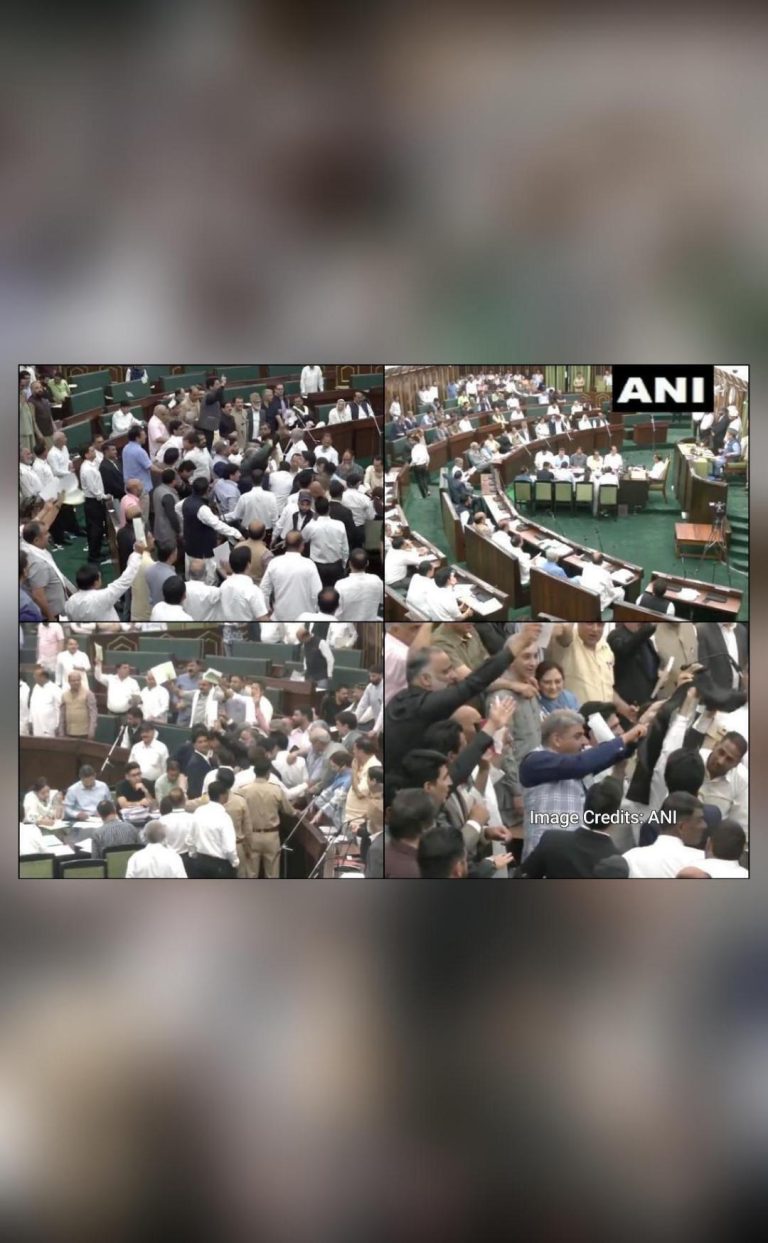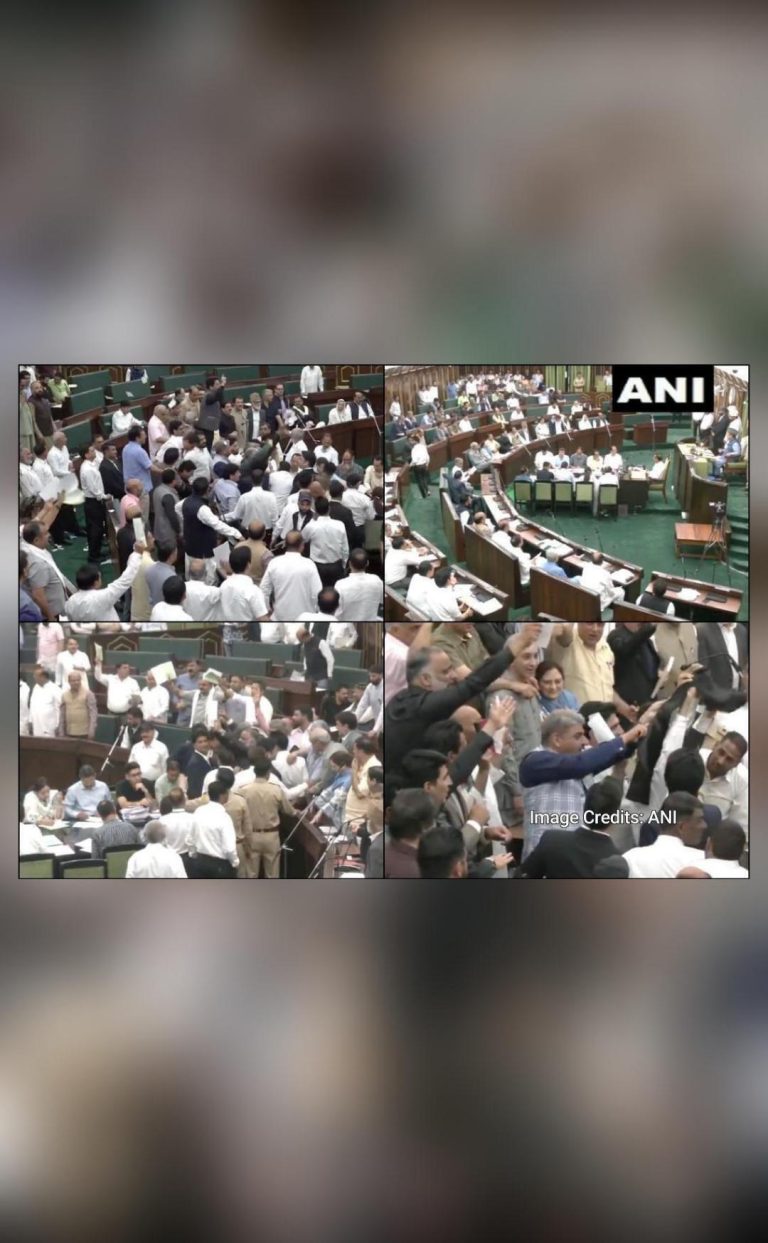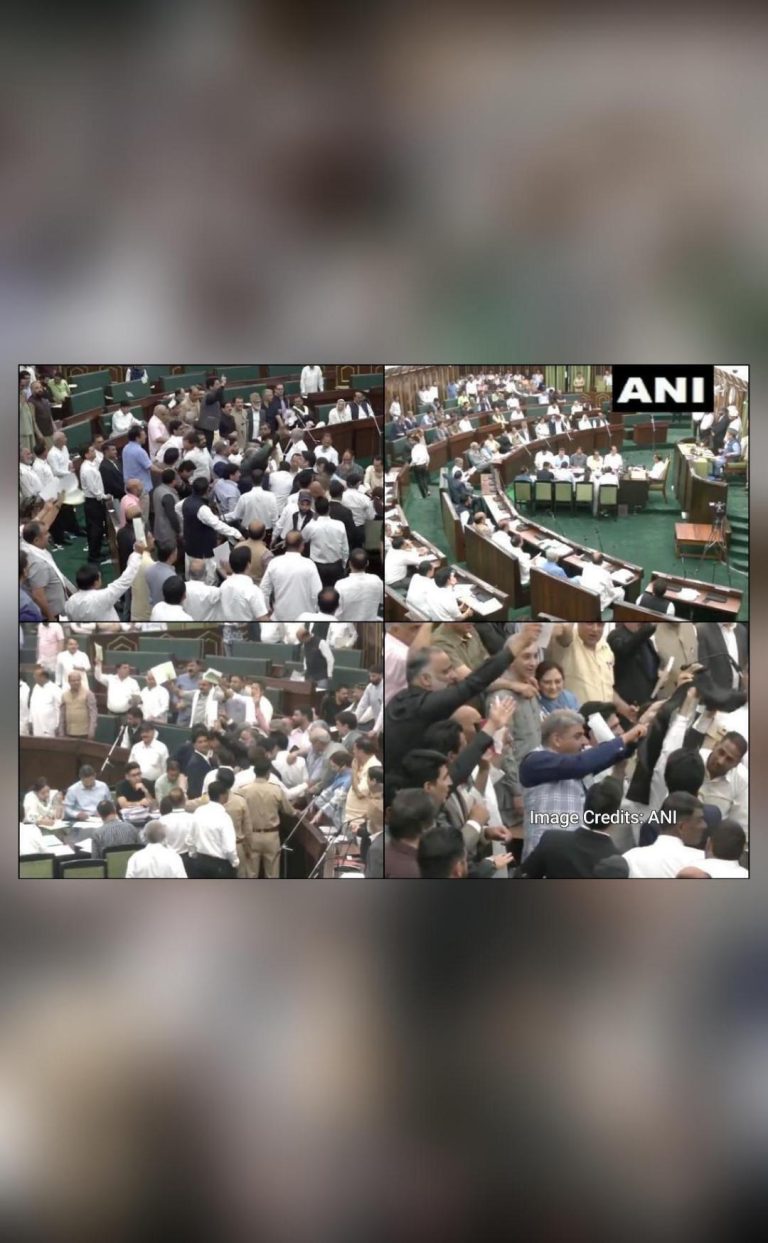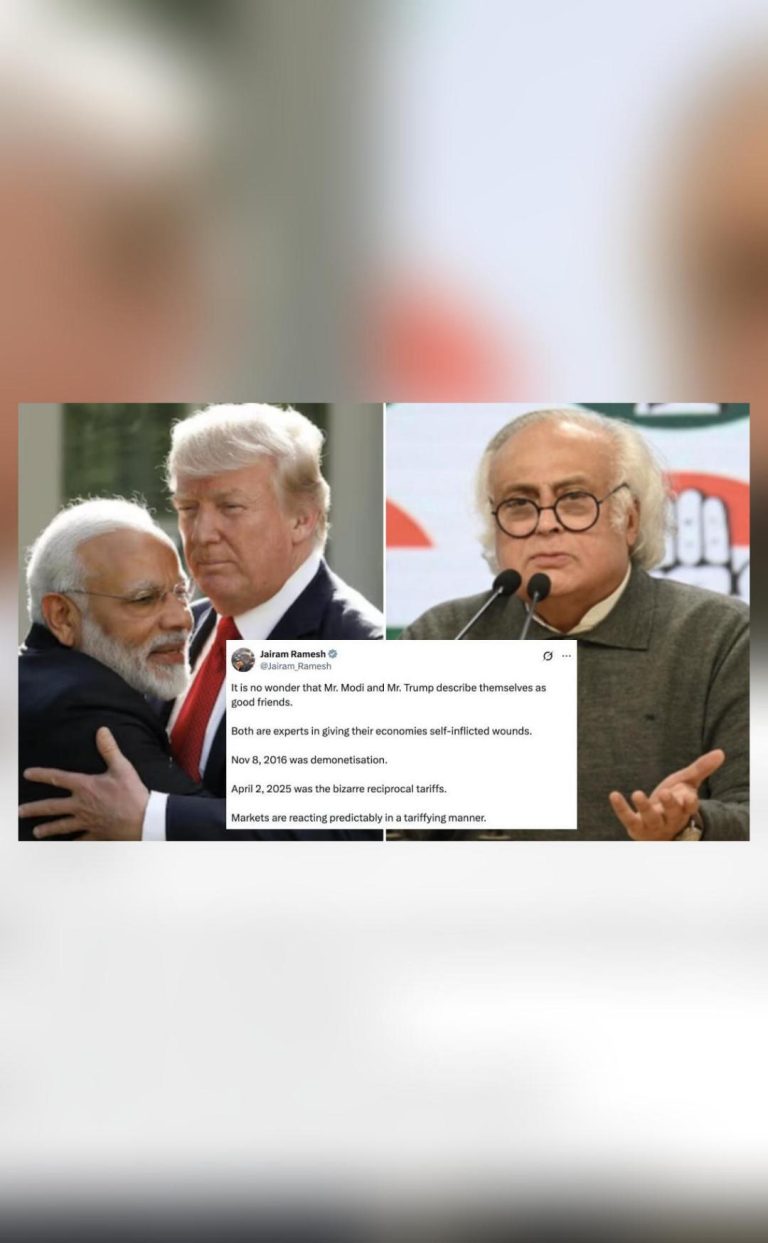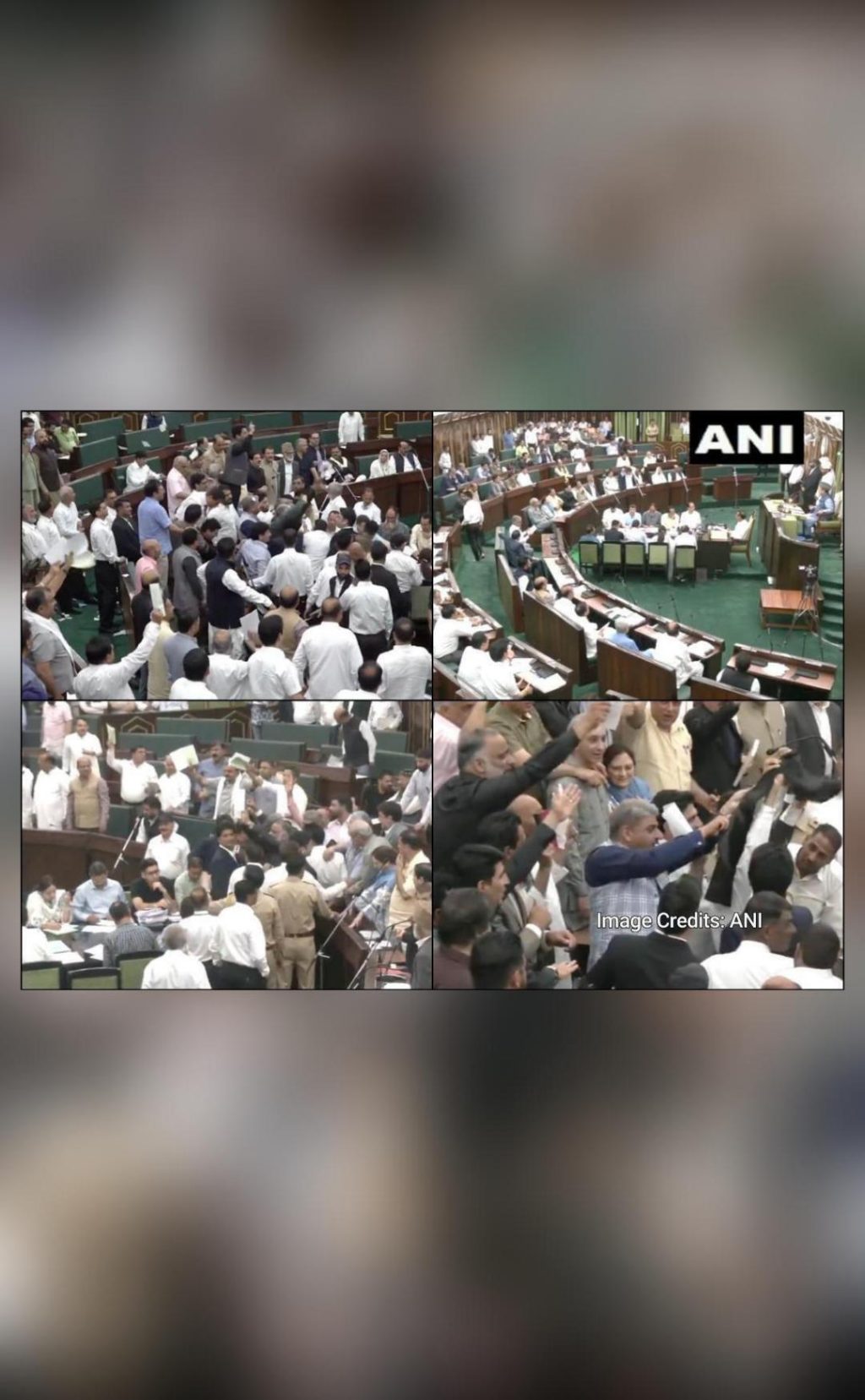
Jammu & Kashmir Assembly adjourned amid uproar over Waqf Act
The Jammu and Kashmir Assembly on Monday witnessed a massive uproar after Speaker Abdul Rahim Rather denied an adjournment motion on the Waqf Act, following which the House was adjourned. The adjournment came after National Conference (NC) MLAs moved a motion to adjourn the Question Hour to discuss the Waqf Act. However, the Bharatiya Janata Party (BJP) also protested and demanded that the Question Hour be held.
The Waqf Act is a contentious issue in the Jammu and Kashmir Assembly, with the NC and other opposition parties accusing the government of attempting to dilute the Act. The opposition parties have been demanding a review of the Act, which they claim is aimed at taking control of Waqf properties, including shrines and mosques, away from the Waqf Board.
The National Conference MLAs, led by party leader and former Chief Minister Omar Abdullah, moved a motion to adjourn the Question Hour to discuss the Waqf Act. However, Speaker Abdul Rahim Rather refused to grant the adjournment, citing that the House had already discussed the issue and there was no need to revisit it.
The BJP MLAs, on the other hand, protested the adjournment motion and demanded that the Question Hour be held. They alleged that the NC was trying to disrupt the proceedings of the House and delay important legislation.
The uproar in the Assembly prevented any further discussion or voting on the Waqf Act. The House was adjourned for the day, leaving the issue unresolved.
The Waqf Act is a sensitive issue in Jammu and Kashmir, with significant implications for the state’s religious minorities. The Act aims to regulate and manage Waqf properties, which are considered sacred by Muslims. However, the opposition parties have accused the government of attempting to use the Act to take control of these properties away from the Waqf Board and hand them over to the government.
The controversy over the Waqf Act has been ongoing for several months, with the opposition parties demanding a review of the Act. The government has refused to budge, citing that the Act is necessary to streamline the management of Waqf properties and ensure their proper maintenance.
The Jammu and Kashmir Assembly has been witnessing frequent adjournments and disruptions in recent times, with opposition parties accusing the government of not addressing their concerns. The Waqf Act controversy is the latest in a series of issues that has led to disruptions in the Assembly.
The government has been facing criticism from the opposition parties over its handling of various issues, including the Waqf Act. The opposition parties have accused the government of not consulting them on important issues and ignoring their concerns.
The Waqf Act controversy has also raised concerns over the government’s intentions and its commitment to protecting the rights of religious minorities in Jammu and Kashmir. The opposition parties have accused the government of trying to undermine the autonomy of the Waqf Board and take control of Waqf properties away from the community.
In the midst of the controversy, the Jammu and Kashmir government has maintained that the Waqf Act is necessary to ensure the proper management of Waqf properties and protect the rights of the community. The government has also accused the opposition parties of trying to politicize the issue and delay important legislation.
The Waqf Act controversy is a significant issue in Jammu and Kashmir, with significant implications for the state’s religious minorities. The controversy has also highlighted the deep divisions within the Jammu and Kashmir Assembly, with the opposition parties accusing the government of not addressing their concerns and ignoring their rights.
As the controversy over the Waqf Act continues to unfold, it remains to be seen how the Jammu and Kashmir government will address the concerns of the opposition parties and ensure the proper management of Waqf properties. The issue is likely to remain a contentious one in the Jammu and Kashmir Assembly, with significant implications for the state’s religious minorities.
